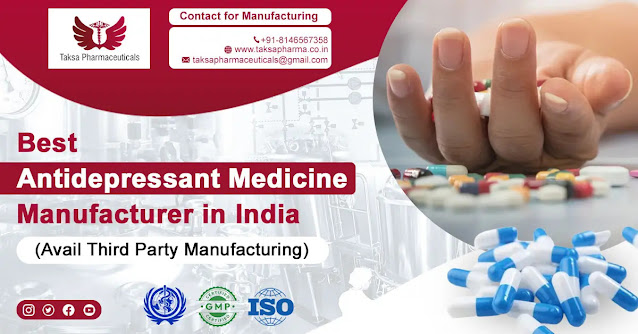What to Ask Before Partnering with a Third Party Manufacturer
When companies in the pharmaceutical sector consider outsourcing production, partnering with a third party manufacturer in Baddi can be an appealing option. This collaboration can lead to cost savings, increased production capabilities, and the ability to focus on core business functions. However, entering into such a partnership requires thorough vetting and careful consideration. Here are essential questions to ask before forging a relationship with a third party manufacturer, particularly those located in Baddi, a hub for pharmaceutical manufacturing in India.
1.
What is Their Experience and Expertise?
Before finalizing a partnership,
it's crucial to assess the manufacturer’s experience in the pharmaceutical
industry. Companies should inquire about their years of operation, the types of
products they specialize in, and their overall reputation. A manufacturer with
extensive experience is more likely to understand industry regulations, quality
control, and compliance standards, which are critical for pharmaceutical products.
2.
What Certifications Do They Hold?
Certifications are indicative of a
manufacturer’s adherence to industry standards. Companies should confirm that
the third party manufacturer possesses relevant certifications such as Good
Manufacturing Practices (GMP), ISO standards, and any necessary regulatory
approvals. These certifications ensure that the manufacturer meets specific
quality and safety standards, which is essential in the pharmaceutical
industry.
3.
Can They Scale Production?
As business needs evolve, the
ability to scale production is vital. Companies should discuss the
manufacturer’s capacity for scaling operations to meet increasing demand. It’s
important to ask about their infrastructure, technology, and workforce
capabilities. A flexible manufacturer will be better equipped to adapt to
changing market conditions without compromising product quality.
4.
What Are Their Quality Control Processes?
Quality control is paramount in the
pharmaceutical sector. Companies should inquire about the third party manufacturer’s quality assurance protocols and testing procedures.
Understanding how they handle quality control, from raw materials to final
products, can help assess the reliability of their manufacturing processes.
5.
What Are Their Lead Times and Delivery Schedules?
Timeliness is critical in the
pharmaceutical industry. Companies should discuss lead times for production and
delivery schedules upfront. It’s important to understand the manufacturer’s
ability to meet deadlines consistently, as delays can impact product launches
and market availability.
6.
How Do They Handle Regulatory Compliance?
Companies should ask how the
manufacturer keeps up with regulatory changes and how they ensure compliance
with both local and international standards. A reputable third party
manufacturer should have a robust system in place for managing
compliance-related issues.
7.
What Are the Terms of the Partnership?
Before entering into a partnership,
it’s essential to clarify the terms of the agreement. Companies should discuss
pricing structures, payment terms, and any potential hidden costs. Transparency
in these discussions helps establish a solid foundation for a successful
partnership.
8.
What is Their Communication Process?
Effective communication is vital for
any successful partnership. Companies should inquire about the communication
channels the manufacturer uses and how they handle updates regarding production
and potential issues. A manufacturer that prioritizes clear communication can
foster a more collaborative and efficient working relationship.
Conclusion
Partnering with a third party
manufacturer can significantly enhance a pharmaceutical company's operational
capabilities. However, careful consideration and thorough vetting are crucial
for success. By asking the right questions, companies can ensure they select a
partner who aligns with their business goals and maintains the highest quality
standards. For example, Taksa Pharma, known for its commitment to quality and
compliance, exemplifies a reliable partner in the competitive landscape of
third party manufacturing in Baddi. Taking these steps can help companies forge
partnerships that lead to sustainable growth and success.



Comments
Post a Comment